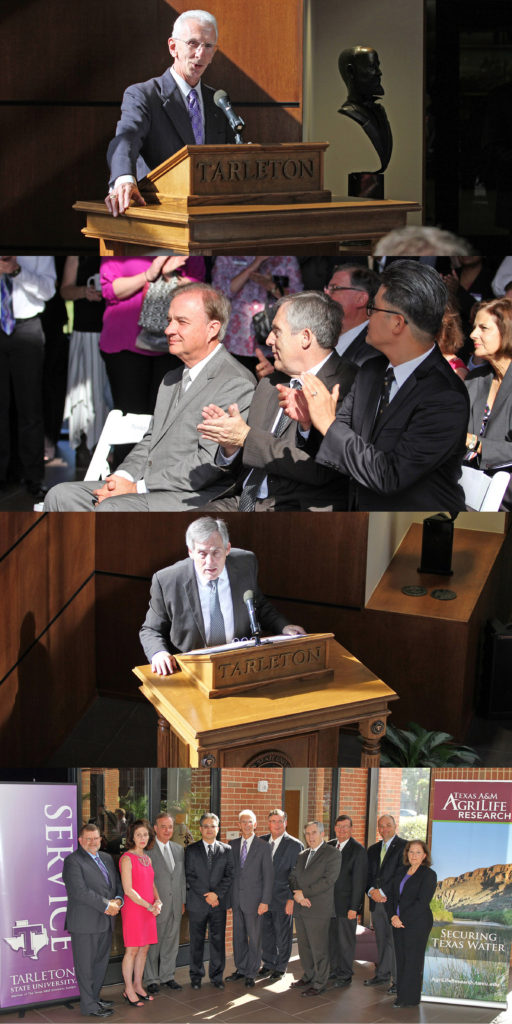Farm & Ranch
Tarleton Receives $997,500 Agricultural Research Grant

FOR IMMEDIATE RELEASE Cecilia Jacobs
Wednesday, October 19, 2016 817-597-6040
Tarleton State University, Texas A&M AgriLife expand bioenergy research
STEPHENVILLE, Texas—Tarleton State University’s Office of Sponsored Projects and Texas A&M AgriLife Research have received an almost $1 million grant to expand their study of bioenergy recovery from animal waste and improve the sustainability of agricultural industries.
The $997,500 grant comes from the Chancellor’s Research Initiative, a fund established by Texas A&M University System Chancellor John Sharp in 2013 to enable the recruitment of star researchers throughout the A&M System.
Dr. Eunsung Kan joins Tarleton’s Southwest Regional Dairy Center as a result of the award, strengthening and expanding collaborative efforts by Tarleton and Texas A&M AgriLife. His research focuses on technologies that recycle dairy manure and wastewater for power generation and other purposes in a way that is environmentally responsible but does not increase operational cost for the dairy farmers.
“The recruitment of Dr. Kan is a great example of why the Chancellor’s Research Initiative is such an important program,” said Chancellor Sharp. “He is an incredible addition to the research efforts at Tarleton and Texas A&M AgriLife, and his research will have tremendous benefits for dairy production in the region and throughout the state.”
Kan previously served as assistant professor in the Department of Molecular Bioscience and Bioengineering at the University of Hawaii at Manoa. He earned his doctorate in chemical and environmental engineering from the University of California at Riverside and conducted postdoctoral research for the U.S. Environmental Protection Agency. He serves as editor of the Open Journal of Water Pollution and Treatment.
“Dr. Kan’s arrival brings our original vision for the Southwest Dairy Center to fruition,” said Tarleton President F. Dominic Dottavio. “We are creating a leading research center for animal waste management and bioenergy recovery that will help develop sustainable food production practices and improve quality of life for Texans and others.”
In addition to leading a team of researchers, Kan will help leverage additional federal, industrial and foundation funding to continue Tarleton and Texas A&M AgriLife’s focus on improving the use of natural resources and reducing environmental concerns associated with water and air quality.
“I am honored to join Tarleton State University and Texas A&M AgriLife in research that is sure to improve the sustainability of agricultural industries and protect our vulnerable environment,” Kan said.
The funds follow a grant awarded to Texas A&M AgriLife Research in 2014 by the USDA Natural Resources Conservation Service to kick start technologies that use animal waste from Tarleton’s dairy center to generate heat and electrical power.
Tarleton State University held a joint press conference with Texas A&M AgriLife Research Wednesday, Oct. 19, to announce a $997,500 grant as part of the Chancellor’s Research Initiative (CRI). Tarleton President F. Dominic Dottavio (top) addresses attendees gathered in the university’s Administration Building; (2nd from top) A&M System Chancellor John Sharp is applauded by Director of Texas A&M AgriLife Research Dr. Craig Nessler and Dr. Eunsung Kan following his CRI announcement; (3rd from top) Dr. Nessler talks about the importance of environmental research that potentially will help dairy producers become more efficient and sustainable in their operations; (bottom photo, l-r) College of Agricultural & Environmental Sciences Dean Dr. Steve Damron, Charlotte Sharp, Chancellor Sharp, Dr. Kan, Dr. Dottavio, A&M System Vice Chancellor for Federal & State Relations Tommy Williams, Dr. Nessler, A&M AgriLife Vice Chancellor Dr. Mark Hussey, College of Graduate Studies Dean Dr. Barry Lambert and Provost Dr. Karen Murray gather following Wednesday’s press conference announcing the Chancellor’s Research Initiative at Tarleton.
# # #
About Tarleton State University
Tarleton, a member of The Texas A&M University System, provides a student-focused, value-driven educational experience marked by academic innovation and exemplary service, and dedicated to transforming students into tomorrow’s professional leaders. With campuses in Stephenville, Fort Worth, Waco, Midlothian and online, Tarleton engages with its communities to provide real-world learning experiences and to address societal needs while maintaining its core values of integrity, leadership, tradition, civility, excellence and service.
About The Texas A&M University System
The Texas A&M University System is one of the largest systems of higher education in the nation, with a budget of $4.2 billion. Through a statewide network of 11 universities and seven state agencies, the Texas A&M System educates more than 140,000 students and makes more than 22 million additional educational contacts through service and outreach programs each year. System-wide, research and development expenditures exceeded $946 million in FY 2015 and helped drive the state’s economy.
About Texas A&M AgriLife Research
Texas A&M AgriLife Research is the state’s premier research agency in agriculture, natural resources and the life sciences. A member of The Texas A&M University System, AgriLife Research conducts hundreds of projects spanning many different scientific disciplines to deliver life-sustaining and industry-changing impacts to residents in Texas and throughout the world.
Contact:
Harry Battson, Assistant Vice President for Marketing & Communications
254-968-1620 (office)
254-431-1760 (cell)
Farm & Ranch
Managing Show Cattle Through The Winter

By Heather Welper
Husband and wife duo, Heather and Calvin Welper, are the Co-Owners and Operators or Two C Livestock, located in Valley View, Texas.
The pair’s operation has a show cattle focus where they raise and sell purebred heifers of all breeds and club calf Hereford steers.
When it comes to show cattle, the Welpers know a thing or two including how to prepare for the cold winter months and the Texas major show season run.
To read more, pick up a copy of the November edition of North Texas Farm & Ranch magazine, available digitally and in print. To subscribe by mail, call 940-872-5922.
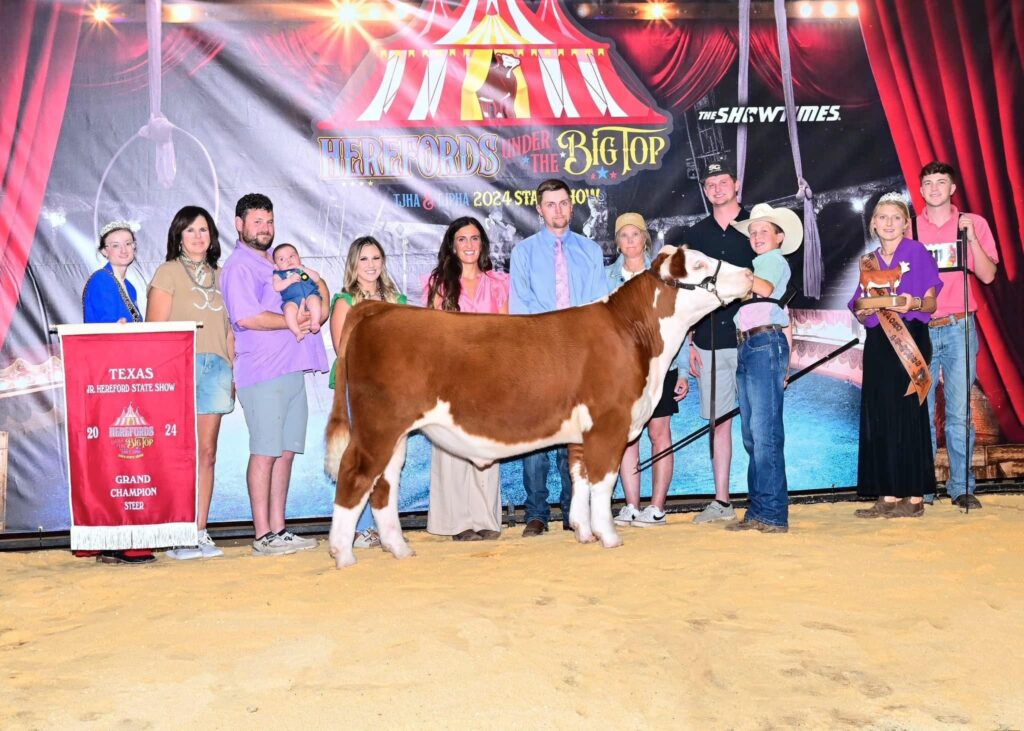
Farm & Ranch
Double M Ranch & Rescue

By Hannah Claxton, Editor
As the sun rises each day, so do the dozens of mouths that Meghan McGovern is responsible for getting fed. Rather than the sounds of a rooster crowing, McGovern hears the bellows and bleats of a variety of exotic deer, the chortle of kangaroos, the grunts of water buffaloes, and the chirps of a lemur.
Nestled against the banks of the Red River, the Double M Ranch and Rescue, with its high game fences and deer sprinkling the landscape,s its in stark contrast to the surrounding ranches.
“Having deer is kind of like eating potato chips- you can never actually have just one,” said McGovern with a laugh.
McGovern has several herds to take care of- fallow deer, axis deer, water buffalo, goats, and bison. In smaller numbers, there’s also a few kangaroos, a lemur, a potbelly pig, a pair of zebras, a watusi, and a few horses.
To read more, pick up a copy of the November edition of North Texas Farm & Ranch magazine, available digitally and in print. To subscribe by mail, call 940-872-5922.
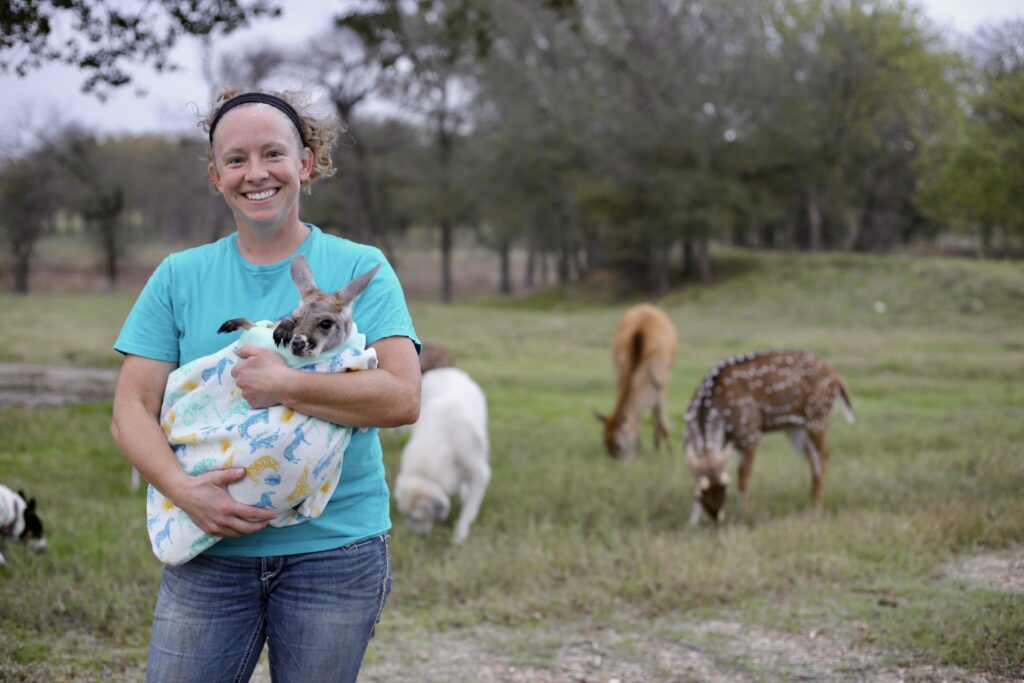
Farm & Ranch
Acorn Toxicity
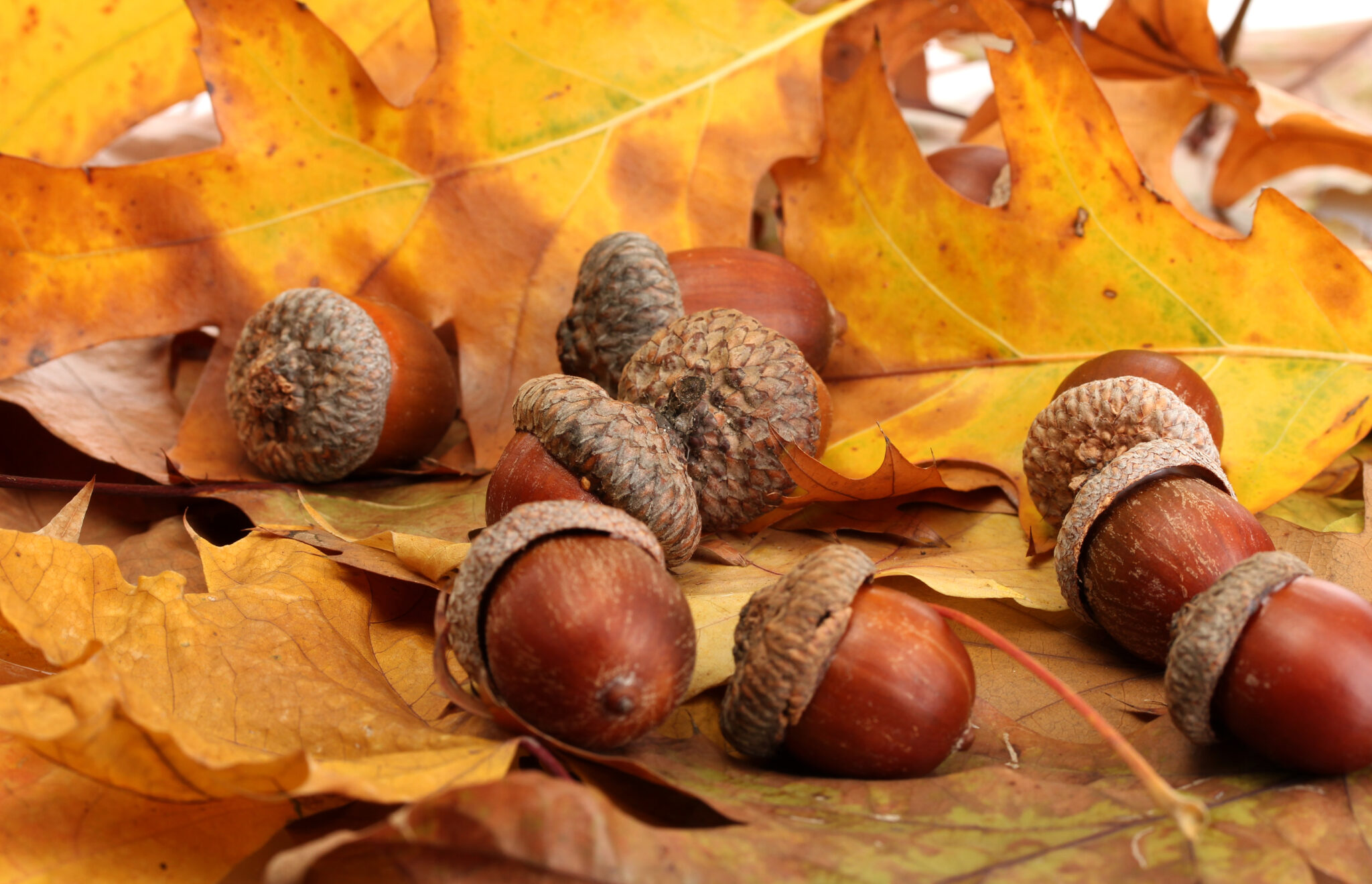
By Barry Whitworth, DVM, MPH
With the prolonged drought, most pastures in Oklahoma end up in poor condition. With the lack of available forage, animals may go in search of alternative foods.
If oak trees are in the pastures, acorns may be a favorite meal for some livestock in the fall. This may result in oak poisoning.
Oak leaves, twigs, buds, and acorns may be toxic to some animals when consumed.
To read more, pick up a copy of the November edition of North Texas Farm & Ranch magazine, available digitally and in print. To subscribe by mail, call 940-872-5922.
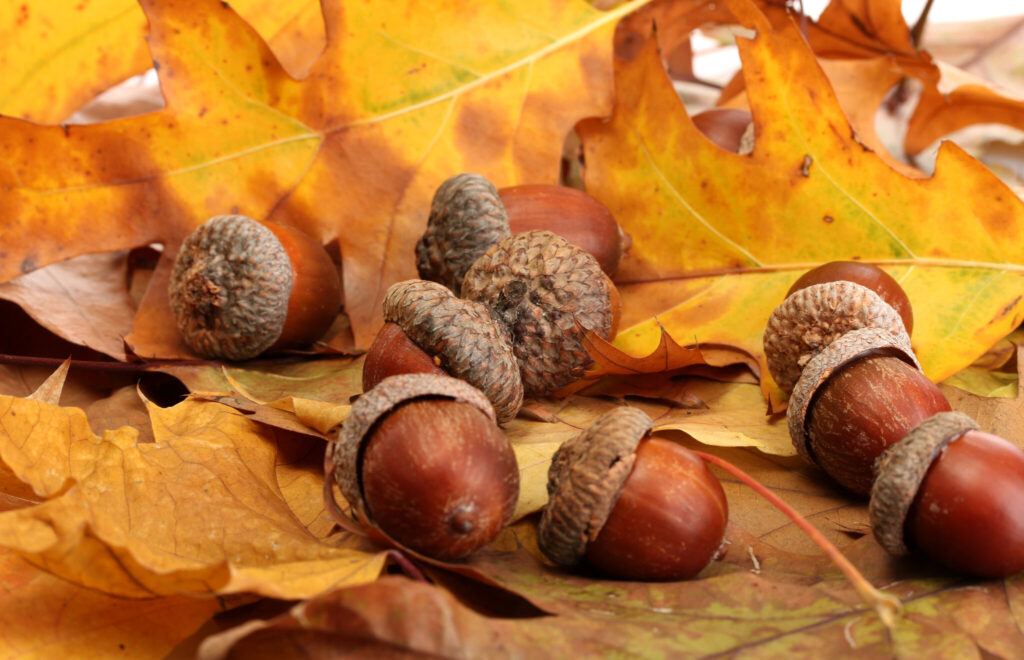
-

 Country Lifestyles2 years ago
Country Lifestyles2 years agoScott & Stacey Schumacher: A Growth Mindset
-

 Country Lifestyles8 years ago
Country Lifestyles8 years agoStyle Your Profile – What your style cowboy hat says about you and new trends in 2017
-

 HOME8 years ago
HOME8 years agoGrazing North Texas – Wilman Lovegrass
-

 Outdoor10 years ago
Outdoor10 years agoButtercup or Primrose?
-

 Country Lifestyles5 years ago
Country Lifestyles5 years agoAmber Crawford, Breakaway Roper
-

 Country Lifestyles9 years ago
Country Lifestyles9 years agoJune 2016 Profile – The man behind the mic: Bob Tallman
-

 Equine1 year ago
Equine1 year agoThe Will to Win
-

 Country Lifestyles8 years ago
Country Lifestyles8 years agoDecember 2016 Profile, Rusty Riddle – The Riddle Way

